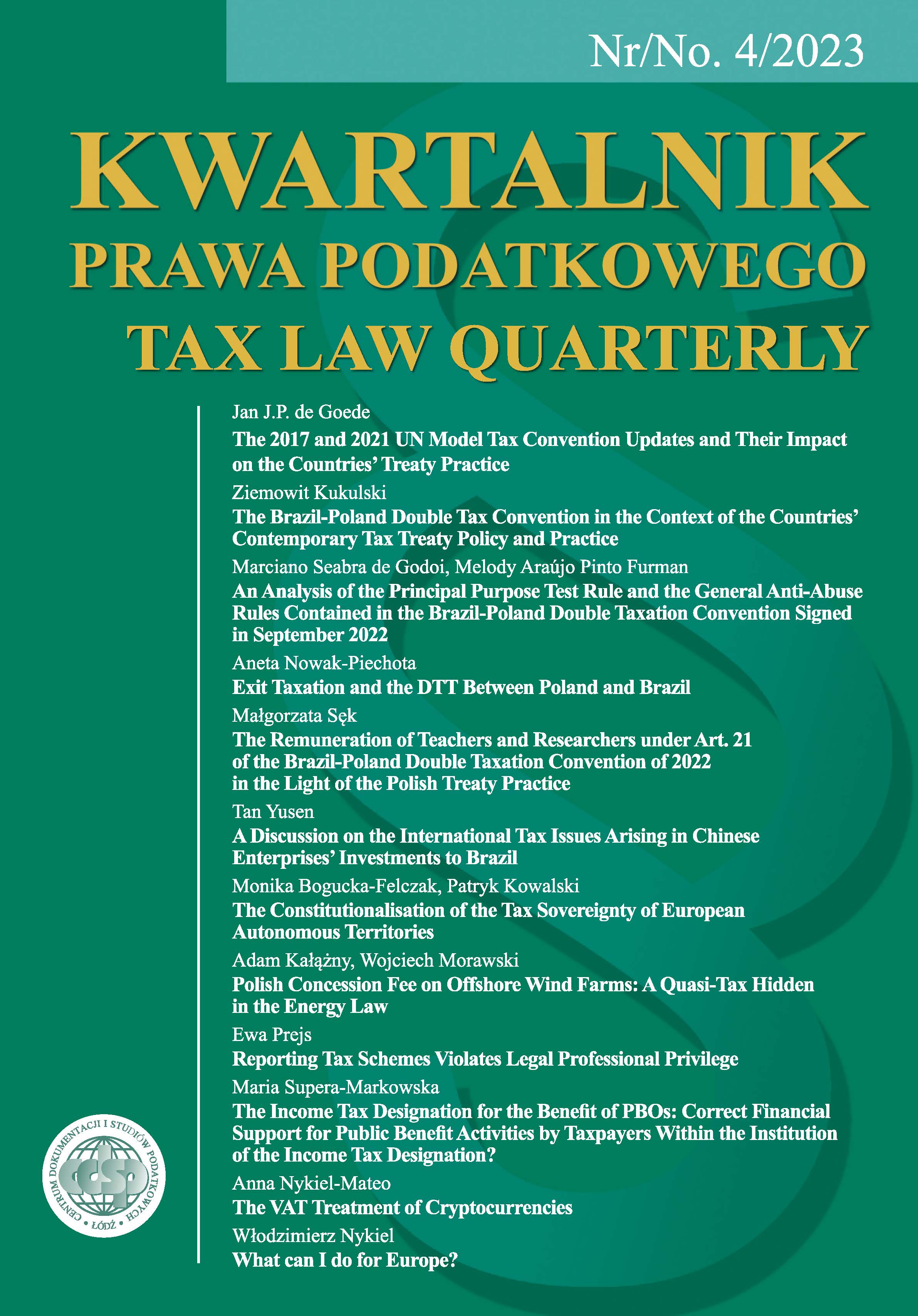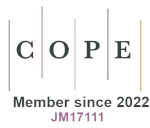Zgłaszanie schematów podatkowych narusza tajemnicę zawodową
DOI:
https://doi.org/10.18778/1509-877X.2023.04.09Słowa kluczowe:
tajemnica adwokacka, schematy podatkowe, MDR, Karta Praw Podstawowych, prawo do prywatnościAbstrakt
W niniejszym artykule Autorka omawia wyrok TSUE w sprawie C-694/20 Orde van Vlaamse Balies i inni, który rozszerza ochronę tajemnicy zawodowej prawników. W kontekście zwalczania agresywnego planowania podatkowego Trybunał Sprawiedliwości orzekł, że obowiązek informowania przez prawników licencjonowanych innych zaangażowanych pośredników w schemat podatkowy nie jest konieczny i narusza prawo do poszanowania komunikacji z klientem. Główną nowością w analizowanym wyroku jest to, że TSUE uznał, że przywilej zawodowy prawników ma pierwszeństwo przed celami i obowiązkami podatkowymi. Osoby, które konsultują się z prawnikiem, a także doradcą podatkowym, mogą zasadnie oczekiwać, że ich komunikacja pozostanie prywatna i poufna. Dlatego też, poza wyjątkowymi sytuacjami, osoby te mają uzasadnione oczekiwanie, że ich prawnik nie ujawni nikomu, bez ich zgody, że się z nim konsultują. W ślad za wyrokiem, Komisja Europejska podejmie inicjatywę legislacyjną mającą na celu zmianę dyrektywy DAC 6, tak aby była ona zgodna z wymogami unijnego prawa pierwotnego, na co wskazał Trybunał.
Wyrok jest ważny również dlatego, że uznaje, że tajemnica zawodowa prawników nie ogranicza się do porad udzielanych w kontekście postępowania sądowego, co było restrykcyjnym poglądem przyjmowanym w sprawach dotyczących ochrony konkurencji.
W wyroku TSUE Orde van Vlaamse Balies i inni, w którym stwierdzono, że obowiązek informowania innych pośredników nałożony w art. 8ab ust. 5 DAC 6 koliduje z prawem do poszanowania komunikacji między prawnikami a ich klientami zagwarantowanym w art. 7 Karty Praw Podstawowych, Trybunał przyznał pierwszeństwo prawu pierwotnemu (Karta Praw Podstawowych) przed prawem wtórnym (DAC 6). W tym kontekście można zaobserwować nowy trend orzeczniczy, w którym dokonano merytorycznej kontroli dyrektywy podatkowej na podstawie Karty Praw Podstawowych. TSUE generalnie niechętnie podejmował się merytorycznej kontroli unijnego prawa wtórnego. Ostatnio jednak TSUE wydaje się uważnie analizować przepisy dyrektyw UE, które nie są zgodne z prawami podstawowymi.
Pobrania
Bibliografia
Franczak A., Granice ingerencji w prawo do zachowania tajemnicy zawodowej doradcy podatkowego w świetle międzynarodowych i unijnych standardów ochrony praw podatnika – część 1, “Kwartalnik Doradca Podatkowy” 2021, no. 1.
Google Scholar
Franczak A., Zwolnienie z obowiązku zachowania tajemnicy zawodowej w zakresie raportowania schematów podatkowych narusza art. 7 Karty Praw Podstawowych Unii Europejskiej. Uwagi na tle wyroku Trybunału Sprawiedliwości z 8.12.2022 r., C-694/20, Orde van Vlaamse Balies i in., “Przegląd Podatkowy” 2023, no. 4.
Google Scholar
Ladziński A., Wasiul D., O nieprawidłowej implementacji dyrektywy 2018/822 (MDR) i jej konsekwencjach, “Przegląd Podatkowy” 2019, no. 5.
Google Scholar
Salmini Sturli E., Thibault H., Extension of EU Legal Professional Privilege: Case C-694/20 Orde Van Vlaamse Balies, “Journal of European Competition Law & Practice” 2023, vol. 14, Issue 3, April.
Google Scholar
Wilk M., Ujawnianie schematów podatkowych a tajemnica zawodowa doradcy podatkowego, “Przegląd Podatkowy” 2019, no. 2.
Google Scholar
Pobrania
Opublikowane
Wersje
- 2024-04-26 - (2)
- 2023-12-30 - (1)
Jak cytować
Numer
Dział
Licencja

Utwór dostępny jest na licencji Creative Commons Uznanie autorstwa – Użycie niekomercyjne – Bez utworów zależnych 4.0 Międzynarodowe.
PlumX metrics









